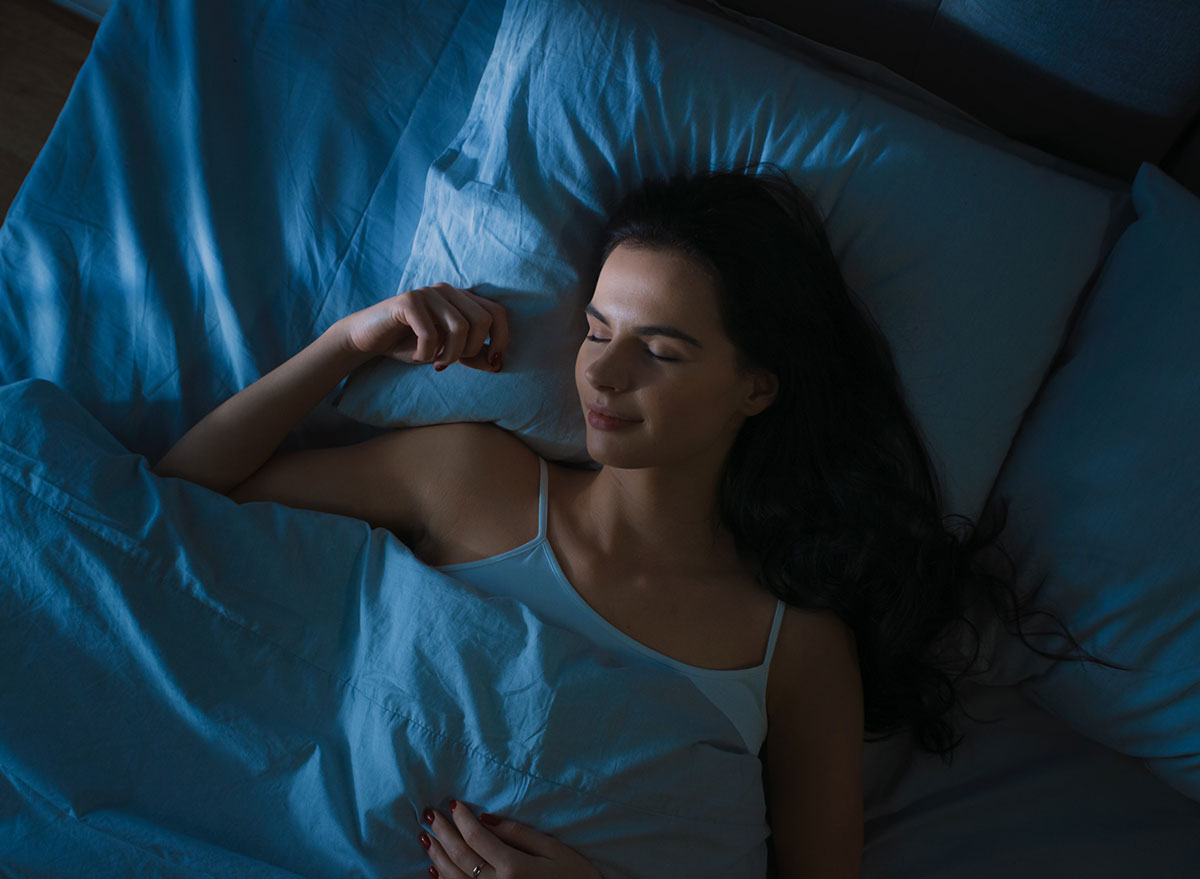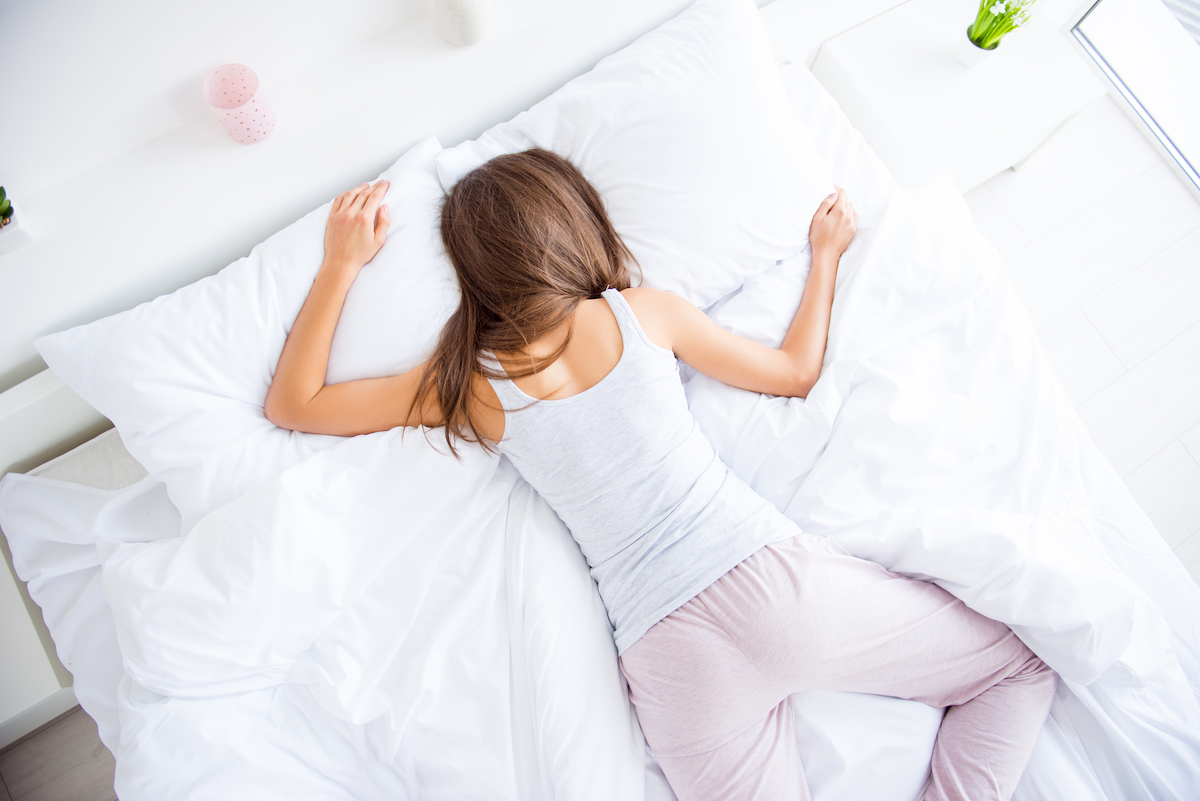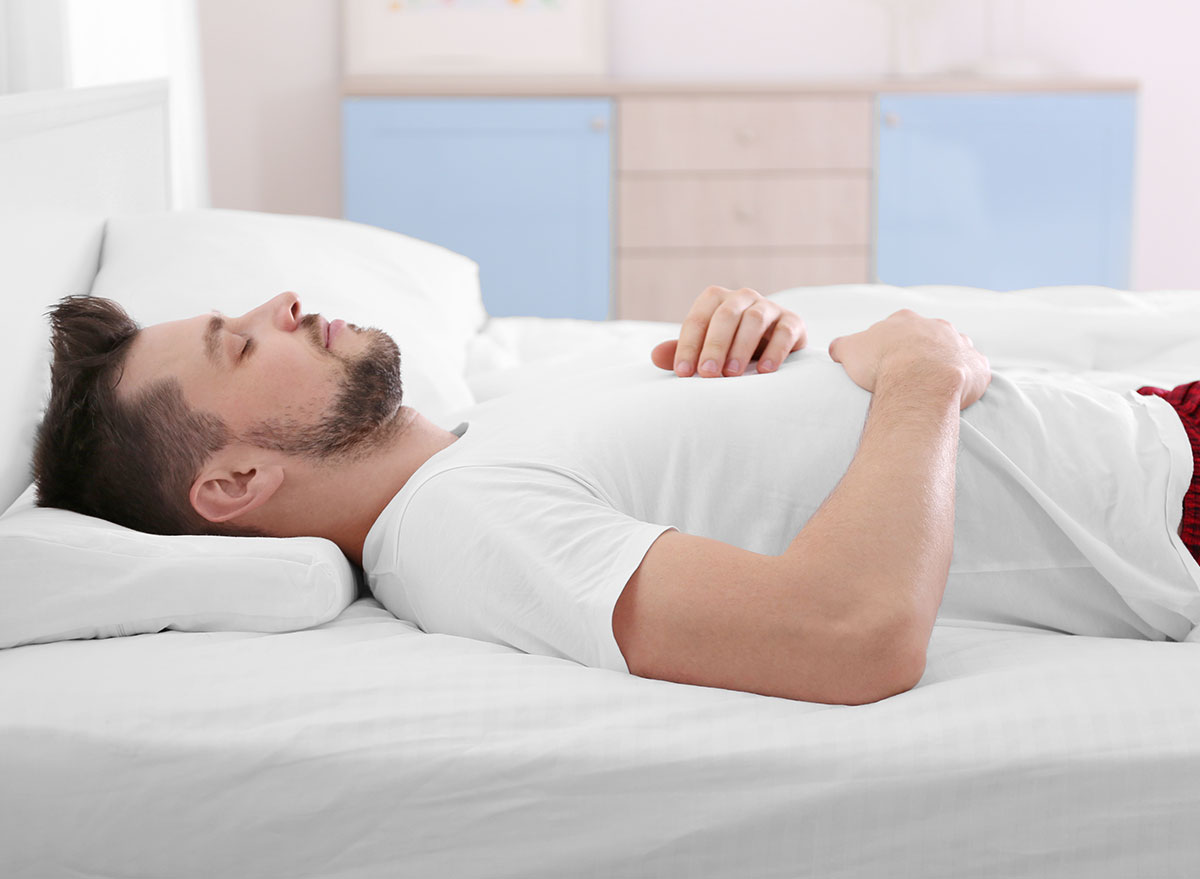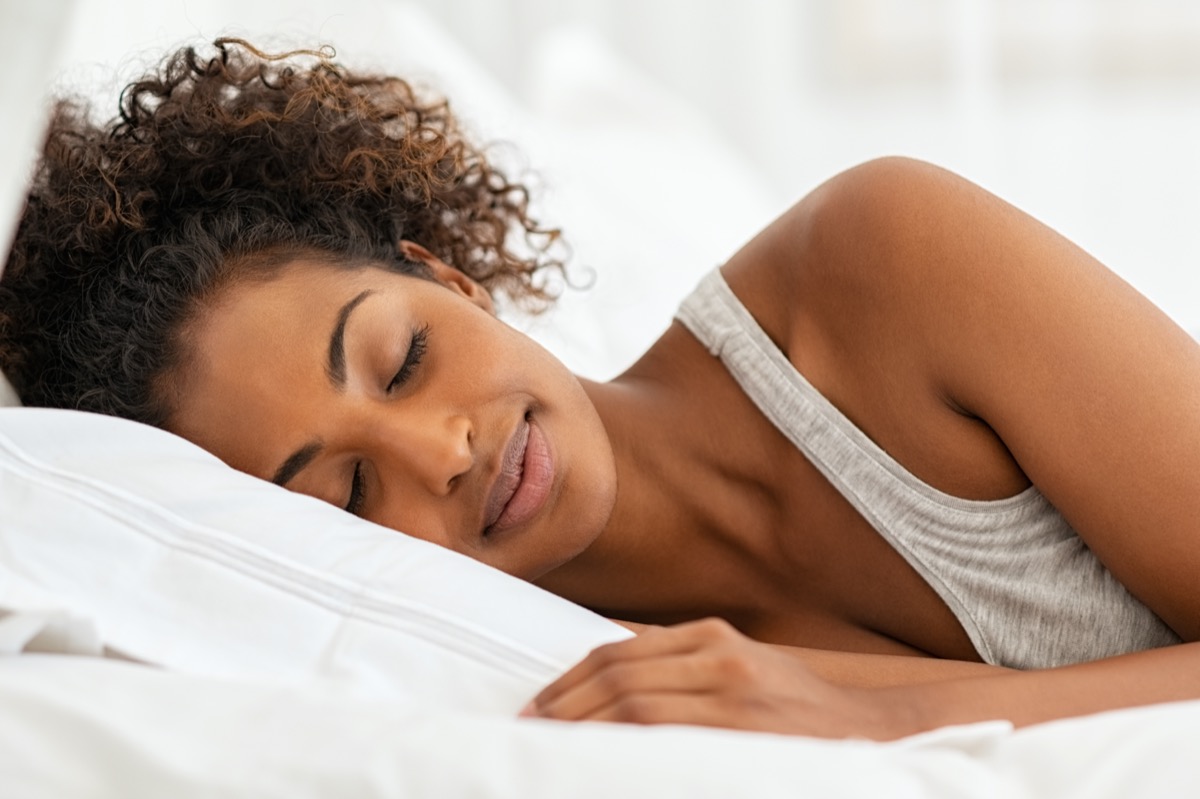Want to Sleep Better? Avoid These Sleep Positions, Say Experts

Ever woken up feeling as sore and exhausted as a boxing champion—even when all you did the night before was binge Never Have I Ever? You might want to take a good long look at your go-to sleep position.
“Every person has different body types and sizes. Back and neck pain can develop simply by sleeping in a position that isn’t optimal for their proper spinal alignment,” explains Kevin Lees, DC, of The Joint Chiropractic.
The mattress you sleep on can influence your positioning throughout the night as well. “The type of mattress a person uses can also affect how they sleep and the position they sleep in. Having proper support while one sleeps may help minimize how often they change position and awaken during the night. Laying in a position that creates more pressure or stress, such as being on their side on a firm mattress, may cause a person to toss and turn,” Dr. Lees says.
So, you may want to make a spacious, comfy mattress the first item on your checklist toward better, healthier sleep. Past that, what are the sleeping positions you should avoid like a bad nightmare? Per Healthline, the answer to that question will likely vary from person to person. That being said, there is one pose considered to be the worst, generally speaking, and another often touted as the best. Read on to learn more about the best (and worst) sleep positions. And for more sleep-promoting intel, check out: Nighttime Habits That Ruin Your Sleep, According to Science.
Avoid: Sleeping on your stomach

Sleeping on your stomach may feel nice in the moment, but you could end up paying for it later on. “The most abnormal [sleeping] position is on the stomach, with the head turned to one side,” says Gbolahan Okubadejo, MD, FAAOS, of NYC’s Institute for Comprehensive Spine Care. “This causes severe imbalance in muscle tone, particularly in the neck region.” Dr. Okubadejo adds that the neck is structurally incredibly delicate, which means sleeping on our stomachs can further irritate and greatly increase the vulnerability of that area.
“Imagine spending a day with your neck turned to one side and your chest flat against a wall. Doesn’t that sound miserable? Yet in effect, that’s what stomach sleepers do to themselves every night,” adds Wendy Twohey, DC, of the Dr. Gil Center for Back, Neck, and Chronic Pain Relief. “Sleeping on your stomach is horrible for your neck and for spine health overall.” This sleep position can create lasting problems, she says, such as chronic neck and back pain. Read more: Secret Side Effects of Having a Set Bedtime, Say Experts.
The best sleep position: On your back

Most sleep experts and orthopedists will say that sleeping on your back is the healthiest position. Why? Dr. Okubadejo tells us that lying on one’s back promotes proper vertebrae alignment and naturally relaxes both lower back and neck muscles.
Additionally, all of the doctors we spoke to for this article recommend strategically placing a pillow behind your knees as you rest on your back. “Adding a small pillow behind your knees helps give extra support and minimizes pressure to your lower back as it helps support proper alignment of the body,” Dr. Lees notes. It’s also a good idea to use a slimmer pillow for your head and neck, so as not to unevenly distribute your body weight.
Sleeping on your back tends to be the best position for almost everyone, with a few exceptions. “Sleeping on your back isn’t a good option if you live with sleep apnea or if you are prone to snoring since gravity increases the likelihood of the tongue falling back and obstructing the airway,” says Martin Reed, CCSH, founder of Insomnia Coach. For more sleep smarts, don’t miss: Do This Just Minutes a Day to Sleep Like a Baby, Say Doctors.
Runner-up: On your side

If your go-to position is to sleep on your side, you’re not alone. Research shows that people tend to spend the majority of their time sleeping on their sides. Luckily, side sleeping is quite conducive to a restful night and pain-free morning.
“The second-best position and a great alternative to sleeping on your back is to sleep on your side with the legs stretched,” Dr. Okubadejo says. “Make sure your chin is straight ahead, and you are keeping your head in a neutral posture. When you tuck your chin down, you place your head in a painful forward position.” Side sleepers can also benefit from a second pillow between their legs, he adds, “to help keep the hips, pelvis, and spine aligned.”
Of course, just like any other position, sleeping on your side offers both positives and negatives. Amerisleep tells us that while side sleeping can help with sleep apnea and easier breathing, you may also wake up to some shoulder pain depending on the comfortability of your mattress. Importantly, Sanchita Sen, Amerisleep’s CSC (Certified Sleep Coach), writes that most people should opt to sleep on their right side over their left to put less pressure on your heart.
More tips to sleep better at night

We all know that the position we fall asleep in is often very different from how we’re placed when we wake up. It’s natural to move a bit as we sleep, but if you keep waking up each morning on your stomach, there are a few helpful strategies you can employ to stop the cycle.
“If you turn to your stomach during the night without realizing it, sleep in a t-shirt with a pocket and place a ball in the pocket. When you roll to your stomach as you sleep, the pressure of the ball will cause discomfort and you’ll move to a different position,” Dr. Twohey suggests.
Similarly, Dr. Okubadejo recommends gently rolling over to your back and resting for an extra 10 minutes the next time you wake up on your stomach. That extra time will allow your body to do away with any lingering tension that may have built up while you were sleeping on your stomach. Don’t miss: 20 Ways to Double Your Sleep Quality.








